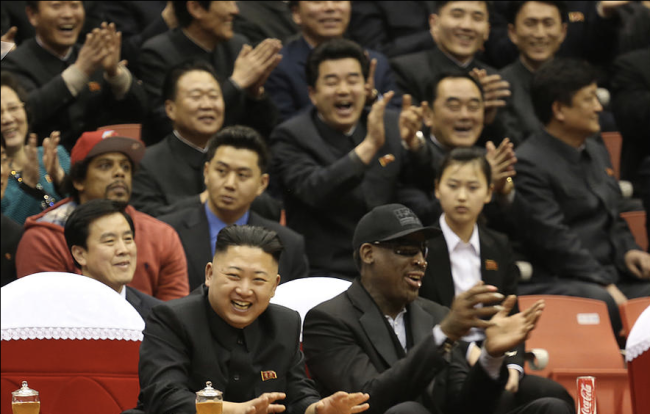Nicholas J. Cull points out that “Successful foreign policy increasingly requires partnerships. Some nations ― most prominently the United Kingdom ― now include “partnership” within their core definition of public diplomacy”[1].
Arguably that’s not so new, foreign policy has consisted of alliances for a good number of decades, hasn’t it? He goes on: “By defining foreign policy objectives around issues of mutual concern to a range of actors rather than narrow national agendas it is possible to enlist those actors and the networks that consider them credible into a common action.”[2]
Now here I do see some change. Change that could redefine more than foreign policy: change that could redefine the concept of national interest.
Couldn’t we say that most of the biggest issues we are facing today are of mutual concern, even more so than in the past? Think of climate change, the processes fueling terrorism/freedom fighting, or even if you want to think in economic terms: recent years especially have shown that economic concerns for one country never stay economic concern for just that one country.
Can you tell me an issue of concern in your country that is an issue of concern for your country only? Even if the issue itself appears to affect your country only, can you tell me than no other country in the world is facing a similar issue? If not, then wouldn’t pooling your research resources increase the likelihood of you both resolving that issue more quickly?
Another thought: take the issue of terrorism/freedom fighting. Have the aggressive military strategies, which resulted from thinking in terms of national interests, been productive or counterproductive in your opinion?
We can take a step back.
What is your country’s national interest?
From what I have gathered so far, the goal of public diplomacy is communication of an international actor’s policies to foreign publics with the ultimate goal of influencing them in such a way that it becomes easier for these policies’ aims to be achieved.
It thus seems to me that if you can’t answer the above question precisely, it is a bit difficult to strategize, let alone carry out, a comprehensive public diplomacy strategy. Yet I don’t think many people can come up with a very clear answer. Even if they did, I’m not sure if they’d all agree on it.
For example, a lot of government officials from all over the world seem to be employed with the ultimate goal of maximizing their country’s GDP, Gross National Product. Bhutan, however, has taken the decision to put their efforts into maximizing their GDH instead, Gross National Happiness. I am a citizen of one of the first countries that called themselves a democracy, and I don’t recall being given the choice between the two.
In fact, I don’t recall anyone thinking about the possibility of asking for a choice between the two. But if someone thought of asking for that choice, would the answer necessarily be so obvious as to make it an irrelevant question? I definitely don’t think so.
The point is that we have been thinking about issues very narrowly. Is the concept of national interest really that relevant?
One of the strategies of diplomacy has been exchange diplomacy. I have been an international student most of my life, and never thought before this program that I was part of a grander strategy designed to facilitate my host countries’ foreign policies, to carry out their national interests. Would that make you feel a little awkward? I guess it depends on how you answer this question: are these countries’ interests really different?
[1] Nicholas Cull, (2012), “Listening for the hoof beats: Implications of the rise of soft power and public diplomacy,” http://www.globalasia.org/V7N3_Fall_2012/Nicholas_J_Cull.html
[2] Ibid.







You must be logged in to post a comment.